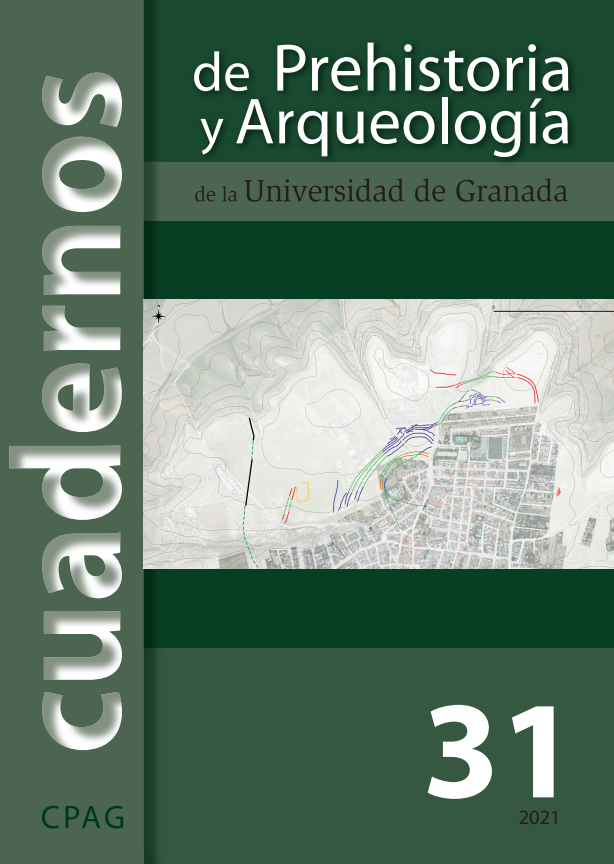EL PAISAJE EN LA TEORÍA. LA INESPERADA VIRTUD DEL ENFOQUE ARQUEOLÓGICO
Contenido principal del artículo
Resumen
En esta contribución se ofrece una perspectiva sobre el vínculo íntimo que se establece entre la teoría, la práctica y los resultados en el campo de la Arqueología del Paisaje contemporánea. Con particular referencia al mundo anglosajón y mediterráneo, se analiza la manera específica en que la adopción de amplias categorías de procedimientos resulta clave para la lectura y después para el juicio. También se incluye una breve descripción de las premisas teóricas que, de manera más o menos explícita, guían y condicionan la investigación actual. En este análisis se pone de relieve cómo las muchas y diferentes interpretaciones del Paisaje representan el reflejo del tipo de preguntas pertenecientes al contexto de una investigación específica. Prestaremos especial atención al enfoque fenomenológico que parece canibalizar el debate. También se propondrá una nueva herramienta heurística para investigar paisajes.



